
如果您對馬克思主義有興趣而想學習或研究,或者可以為翻譯馬克思主義的文章作出貢獻,我們真誠地歡迎您的加入。 網址:https://www.marxists.org/chinese/index.html 臉書:https://www.facebook.com/marxists.internet.archive.chinese
The work of Ernest Mandel, a significant legacy for revolutionary combat in the 21st century
(Germany) Manuel Kellner
Don't mess with ants translation, Handa proofreading
Ernest Mandel (1923-1995), who died 25 years ago, left us an important theoretical legacy. This is a must for anyone who wants to have a balanced judgment on the 20th century and develop a revolutionary perspective in the 21st.
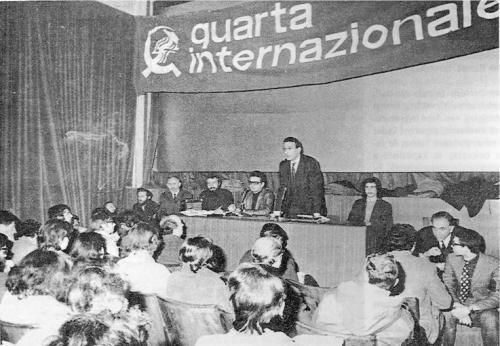
The central line of Ernest Mandel's thought, the axis around which his writings and his life as a fighting revolutionary revolved, was the united self-activity and democratic self-organization of the working class: a universal emancipation of humanity cornerstone. The central idea of his contribution to the strategy of fighting for a classless society, while the essence of his socialist democracy to the world, stems from his critique of capitalism and other coercive modern institutions. Ernest Mandel's internationalism is organic, linked to the center of his focus, to his commitment to the interests of the employed, the oppressed, the dispossessed and all the forgotten inseparable.
It also explains why Ernest Mandel wrote on so many subjects. His outstanding biography, written by Jan Willem Stutje, shows us the life of Mandel himself and his dedication to the revolutionary cause and the building of the Fourth International. [1] An extensive collection of lectures on his contribution to Marxist theory at the 1999 workshop in Amsterdam, edited by Gilbert Achcar. [2] My book on his theoretical work is based primarily, but not exclusively, on an evaluation of his work, giving a general view of his theoretical contributions while discussing its theoretical strengths and weaknesses. [3]
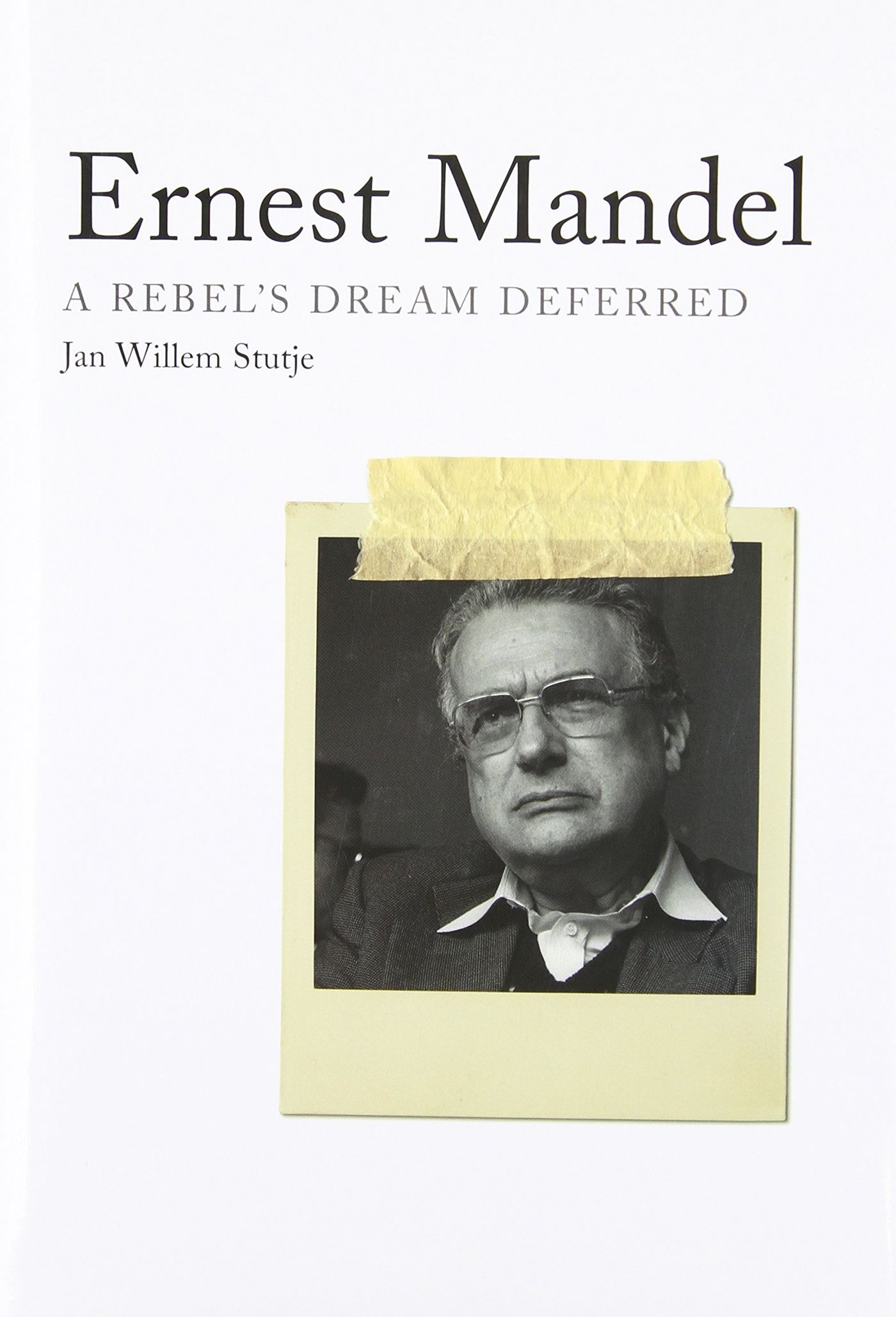
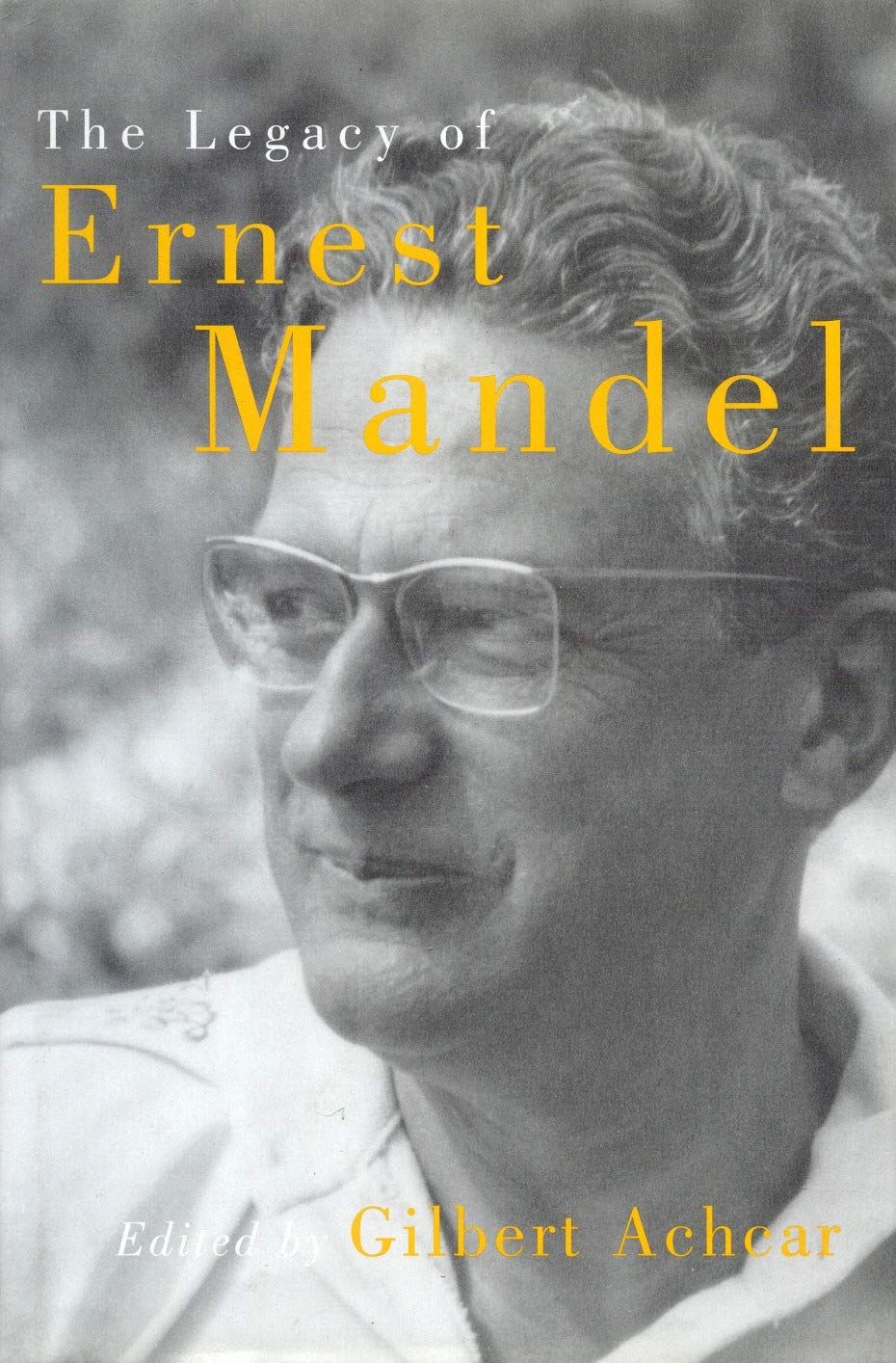
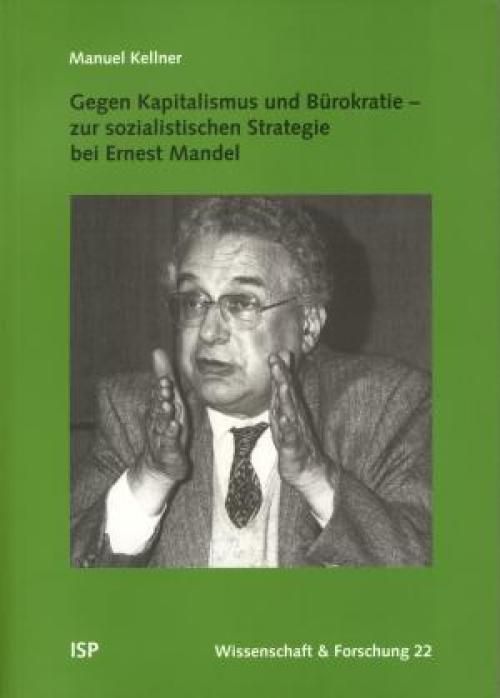
Critique of Political Economy
Mandel's Marxist Economic Theory , published in 1962 (completed in May 1960), sought to demonstrate that "it is possible to reconstruct Karl Marx's entire economic system on the basis of scientific data from contemporary science. ". [4] Numerous citations from numerous publications in various fields of the social sciences and humanities support his thesis that Karl Marx's critique of the capitalist mode of production remains relevant despite the long postwar economic expansion.
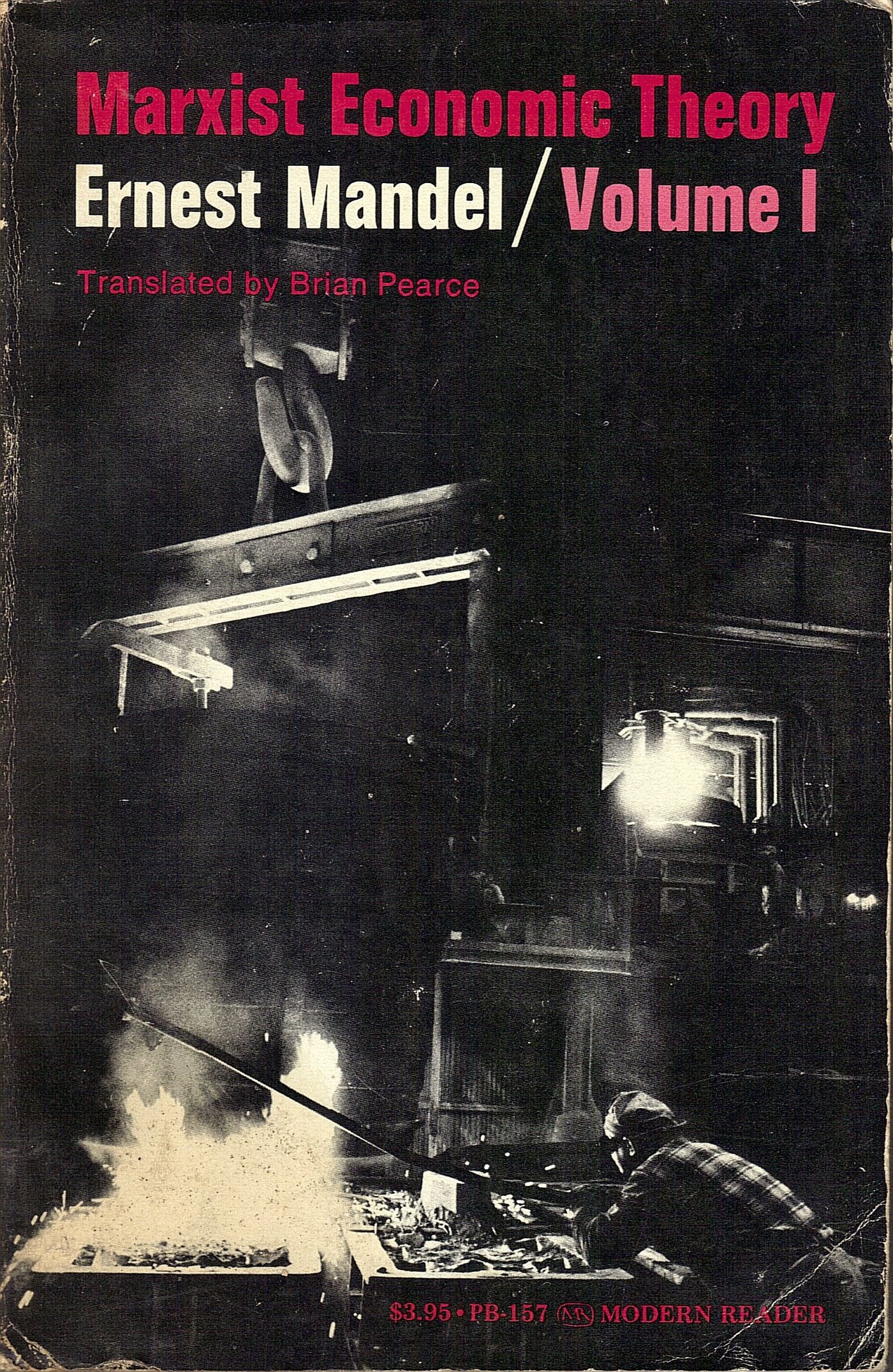
In this work, as in other works dealing with the same subject, and in his extensive "introduction" to the writings of Marx and his successors, Mandel is associated with the kind of "prove" that Marx was, through numerous quotations, the The correct academic pseudo-Marxist approach draws the line. Likewise, Mandel makes no attempt to see Marx's critique of political economy as logical, dogmatic, flowing data. His ambition was to synthesize economic history and economic theory; to show we should see the power of Marx's analytical method in these areas. For example, he developed the labor theory of value in the pre-capitalist example of the ruling class appropriating surplus product.
The biggest advantage of this method is that it is instructive. I know contemporaries like myself who can get in touch with Marx's Das Kapital by reading Mandel. Mandel's style is to illustrate his arguments through a multitude of concrete examples. That's why his work is as easy to understand and convincing as a presentation at an educational class, seminar or political conference. In his preface to Late Capitalism , he elaborates and defends his "genetic-historic" approach, while relativizing it a bit because he accepts because he Received criticism for being too "descriptive" in Marxist Economics. [5]
Mandel was not a proponent of the notion of determinism of historical-dialectical materialism. He speaks of "partially autonomous variables" that determine the evolution of the capitalist mode of production. He explains why this mode of production first appeared in Western European countries, not because of the general "laws" of historical development, but because at some point in history certain peculiarities and certain preconditions were satisfied. For example, gold looted in Latin America increases the potential for the accumulation of money capital and completely isolates a large part of the population from its means of production, thereby allowing massive investment to be used to exploit labor. In China, these preconditions did not arise and as a result - even if some science and technology were more advanced than in Europe - the capitalist mode of production was not able to develop.
Late Capitalism ( Spätkapitalismus ), written in German and published in 1972, is considered Mandel's masterpiece. To position this work, it is necessary to remember that at that time we were far from neoliberal hegemony. Mainstream ideology defends the capitalist system by suggesting that the apparent contradictions of this mode of production are a thing of the past: state intervention has proven to control the crisis, the living standards of many employees have improved markedly, and the "third world" has a chance to catch up At the level of rich countries, the advancement of social security systems has overcome the trend of mass impoverishment.
In this context, Mandel explained, the contradictions of capitalist class society have not yet been overcome and will still break out even more in the near future. He analysed the specific changes in the functioning of capitalism after the war, which for him was a new period in the context of monopoly or imperialist capitalism analysed by Lenin.
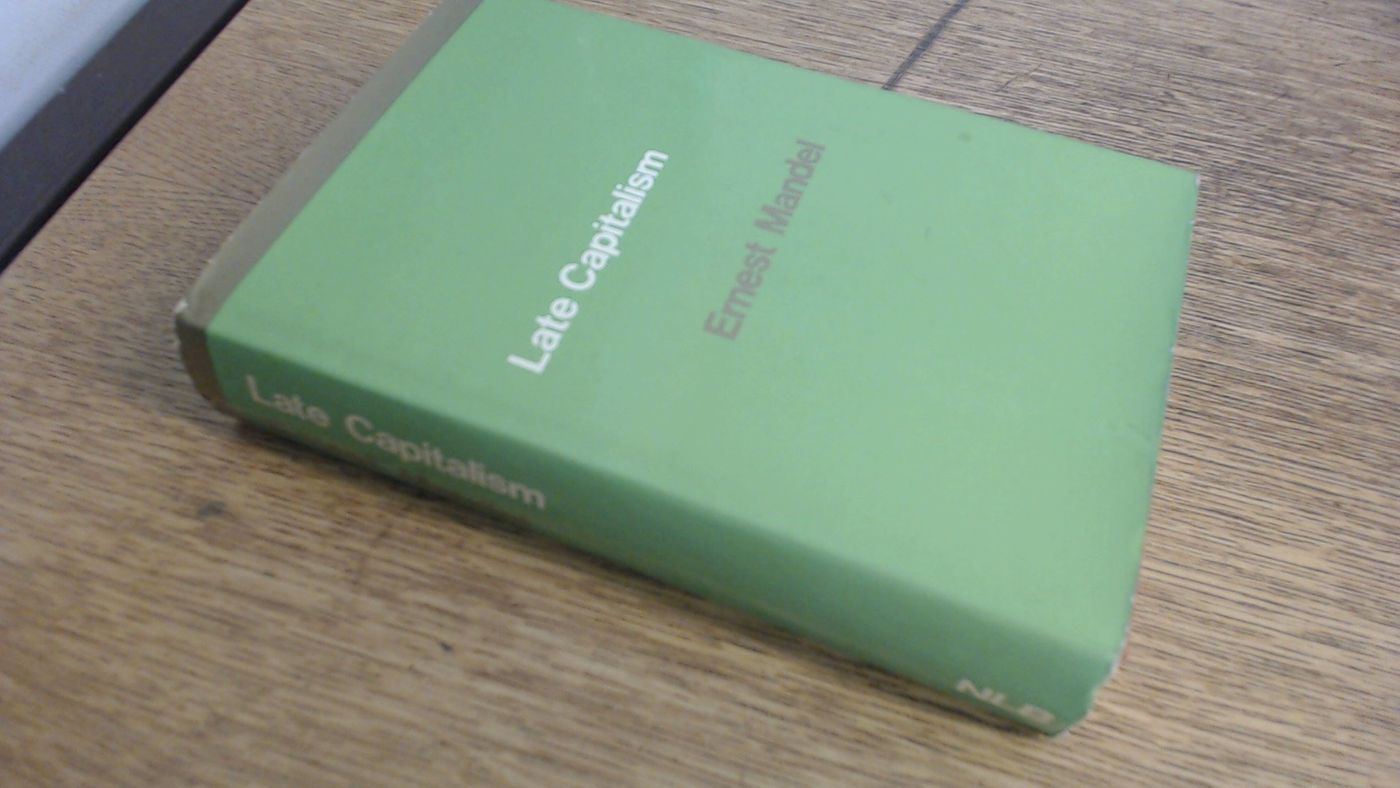
Mandel also contributed to explaining the often devastating crises of capitalist overproduction, which demonstrated the failure of the capitalist system and was a powerful example of Marx's critique of the capitalist mode of production. His original contribution was the rejection of mono-causal explanations—such as the theory of under-consumption, the disproportion between the great departments of production, or the capital Overaccumulation of capital. In his comprehensive analysis, fluctuations in profit margins play an important role. Mandel examines not only the explanatory power of different approaches, but also the role they play in the struggle between the working class and capital. For example, the theory of underconsumption served reformist leadership to limit itself to increasing the purchasing power of the masses, which it said was sufficient to deal with crises. But if wages go up, profits go down... that hardly motivates capitalist investment. The theory of disequilibrium between different branches of production itself stems from the "anarchy" of capitalist production. Here again, this is used as an argument for "super-holding" to overcome the influence of competition on investment decisions. Finally, overaccumulation is used by capital to justify increased production of surplus value. The "Marxist version" of this theory presupposes near-zero unemployment over a long period of time, which is utopian in the capitalist mode of production.
The other side of the coin is the role of cyclical crises. From a capital perspective, it's a crisis of "washing", bringing prices back to real value in an incredible way, in a way that only the strongest businesses and capital remain, while The weakest companies and capital will disappear. Thus, through the crisis, the concentration and concentration of capital was achieved in a catastrophic manner.
Ernest Mandel is a rare Marxist theorist who has theoretically analyzed the "long waves" of capitalism: these general periods of expansion or depression, each of which consists of several shorter cycles . But while industrial cycle crises themselves contain elements of economic revival, Mandel argues that prolonged depression tendencies do not contain the elements necessary for a return to expansionary periods. For this, external factors are needed, which are additional economic factors, often of a political nature. Thus, for example, the failure of the working class that led to World War II and the catastrophic destruction caused by World War II caused a sharp rise in surplus value that hurt wage laborers, setting the stage for postwar expansion.
In a sense, after Marx, Ernest Mandel also spoke of the coming "collapse" (Zusammenbruch) of the capitalist mode of production, which at the time seemed to be at the peak of its success. But he distrusts the economic mechanisms that would lead to such a breakdown. In fact, he emphasized that if the employed, the oppressed are defeated and unable to resist the inhuman treatment that capitalism imposes on them, then the latter can survive - in theory - but in the form of a plunge into global barbarism cost. As opposed to pure economic collapse, Mandel defends the idea of a global multiform crisis, including the crisis of a system in which the bourgeoisie is politically and ideologically dominant. A structural crisis, the result of which is either socialism or the end of human civilization.
socialism
In this regard, drawing on the writings of Marx and the debates between the Russian Bolsheviks and the young Comintern during the Revolution, Ernest Mandel argued that socialism is a society without classes, and therefore without states—there is no such thing as Coercive armament is higher than a social facility. In such a society, considered the first stage of communism, the domination of man by man would be replaced by the co-management of the material goods of society by freely associated producers. Commodities and money will no longer be the quasi-natural forces governing human beings, and the market economy will gradually give way to co-management aimed at satisfying demand in the process of disappearing. As for communism - as outlined by Marx - the free development of everyone in that society is a condition for the free development of all: it is not the "end of history", but rather an exploitation from past history , the beginning of human history liberated from oppression and violence.
Mandel believed that to achieve socialism, the working class must take power into its own hands by mobilizing all oppressed classes, and use the productive forces developed around the world by capitalism to manage and transform them according to their own interests . The political system corresponding to this would be socialist democracy, the only form of working-class rule (Marx and Engels defined the "dictatorship of the proletariat" in the Paris Commune of 1871 - if the most prosperous democracy existed, this is an overview) capable of simultaneously effectively countering the resistance of the propertied classes to the confiscation of their property and developing a democratic plan. It was still a state, but with an element of demise from the start, thus fully preparing for the development of a classless society, "socialism" taking its full literal meaning.
Of course, what the revolutionaries called a "transitional society" (the transition to socialism), which existed directly after the seizure of power by the working class, was much less for ordinary people than the imagined utopia that would emerge decades later. , more interesting. On this, Mandel is very clear: from the outset, this transition to socialism should bring significant improvements to wage laborers and the masses at large. Not only guarantees broader democratic freedoms than any bourgeois parliamentary democratic republic has, but also provides a solid material basis for the masses to truly exercise their democratic rights to participate in self-governing institutions and political decision-making processes. For Mandel, this involved a drastic reduction in working hours across the board, and a marked improvement in living standards for all. In such a transitional society, multiple political parties and their various political options will be required, as well as independent mass organizations and societies, starting with trade unions.
In searching for the weakness of Mandel's argument, we quickly run into the question of these "material bases" necessary to achieve the goal of liberation. When reading the chapter on this issue in Marxist Economics - which brings us back to the early 1960s - it is striking that Mandel was far less aware of ecological issues than he was in the 1980s ( Not to mention the position of the Fourth International today). Among the sources of socialist accumulation that Mandel mentioned in the early 1960s were nuclear energy and extensive agricultural development with the help of chemical fertilizers, areas he would not touch again.
It should be borne in mind that Mandel's concept of emancipation is closely related to a relatively abundant resource of consumption, without which the distribution of consumer goods in non-commodity form can only be envisaged through a system of rationing. Because it means not only meeting basic needs, but also significantly reducing working hours. If multiple forms of production were to be eliminated to save the climate and the planet, if energy production should be drastically reduced, if agricultural production had to be done without monocultures, labor productivity would not have improved significantly. But socialist democracy cannot function without radically reducing everyone's working hours and ensuring a good supply of material. All of these should be reconsidered.
Strategy
Within the capitalist system, the democratic self-organization of wage laborers develops through a collective struggle against capital and its regime. Mandel invites us to imagine a struggle that stretches and expands, such as in Wallonia in 1960-1961. In fact, this is the idea of an insurgent general strike. If this struggle is to be led in a consistent manner, it is its necessity that will lead to the expansion of the movement and the increase in the mandates it has set itself, including those related to public safety. The democratically elected organs of the strikers began to compete with the bourgeois state organs for sovereignty and legal representation. In this way, a simple strike committee could develop into a parliament, the "soviets", a bottom-up alternative regime. Thus, a situation of dual power began to arise, which had to be resolved within a certain period, either by restoring the full authority of the bourgeois state, or by taking power through democratically centralized committees.
Politically speaking, the working class is not homogeneous. Usually, revolutionaries are only a minority of them. The times are not normal times in the context of the development of broad, united self-activity in the class struggle. Working-class masses don’t learn much in passive and atomized states, but they learn a lot when they create spaces for self-determined collective activity. In the context of this broad movement, the revolutionary current must strive to gain growing support for its general ideas and practical programmes so that they can win the majority of the committee.
In order to achieve this, the revolutionaries had to find ways to apply a set of strategic concepts developed by the communist movement in the early 1920s, which no longer existed under Stalinist rule, but were retained and constantly updated by the Fourth International:
- The policy of the united front: joint action with reformist parties and organizations to achieve specific goals and demands;
- Transitional demands: They start from the awareness and problems of the workers at large, and propose solidarity-based solutions (such as reducing working hours without losing wages, pro-rata hiring and worker control over working conditions, prohibiting layoffs, etc.) , which is incompatible with the capitalist system in a dynamic process;
- The building of a revolutionary party: a revolutionary party should unite the vanguard of the broad social and working classes, and all those who continue to lead the struggle, not just in times of mass uprising;
- The organization of memory and reflection at both the national and international levels, so that the experiences experienced during the high tide of the movement do not disappear in the low ebb, so as to give direction to the new movements of the mass movement.
Ernest Mandel's socialist strategy is organic internationalism. He advocates assessing political and social conditions in terms of the world, its markets, its necessary resources, the inequalities that capitalism exacerbates, and the potential for resistance, and various liberating movements at the international level. For poor countries and countries dependent on others, he defends the strategy of permanent revolution so that bourgeois forces cannot put an end to the tasks of democratic revolution, claims of state sovereignty and radical agrarian reform, so that the working class and the oppressed and dispossessed classes are separated from each other. It is necessary for the masses of the people to form an alliance to seize power and thereby integrate themselves into the process of the world socialist revolution.
Analysis of bureaucracy
Mass workers' organizations (associations, trade unions, political parties) established under capitalist conditions cannot do without full-time workers. Organisers, journalists, career politicians, etc. are needed so that these organisations and their parliamentary representatives can function. Ernest Mandel took this very seriously. But he emphasized the price to be paid: the rise of a privileged class within workers' organizations, which created special interests and became increasingly conservative. This was associated with the wealthier working class, who hated revolutions "like fire" (Friedrich Ebert), and undermined movements that could challenge the rhythm of the "conventional line" of capitalist-dominated society .
In response to these bureaucracies, Mandel proposed the building of left-wing class struggle forces, especially within trade unions, which provided alternative strategic options and personnel for the conservative-reformist tendencies of the bureaucratic leadership. It was clear to him that the left's options could only succeed in a broad and struggling mass movement. The first task of the revolutionaries is to do everything possible to promote, encourage and support any tendency towards the collective self-activity of the employed and oppressed. The organization of workers in capitalist conditions is for Mandel a tool of duality: inevitably confronting the power of employers, their associations and political parties, while trying to limit the struggle to real wages in a capitalist context. demands, better working conditions and better social security. As a result, these organizations limit themselves, often giving up beyond mere symbolic success. In order for them to be effective instruments in the vital interests of wage laborers, it is necessary to organize them away from policies of class cooperation and social peace.
The bureaucracy of trade unions or workers' parties is more or less adapted to the regime of bourgeois parliamentary democracy, maintaining a more or less authoritarian and undemocratic model of organization, stifling the normal order, and fighting fiercely against left opponents. In so-called "actually existing socialism" states, the party-state bureaucratic regime is the open oppressor. The bureaucratization of the Soviet Union brought Stalin's faction into power, and the Stalinists were the proper representatives of this bureaucratic privilege. In defense of its material interests, this bureaucracy first sought to break down the Bolshevism's revolutionary history and notions of world revolution. This is why the concept of "socialism in one country" and the policy of state power replaced the strategy of permanent revolution and the consistent internationalism of the young Communist International.
Revolutionary Marxist criticism of these regimes differs from that of bourgeois thinkers. Of course, the horrific crimes of Stalin and his group should be condemned, but at the same time, the apparent conservative nature of the "official communism" established under Stalin's rule should also be recognized.
To describe these states, Mandel begins with an analysis of Trotsky, while expanding the content by examining new trends. The term "bureaucratically degenerated workers' state" is annoying. Trotsky already didn't like it much, and only used it when there was nothing better. Indeed, what is the meaning of a workers' state (even heavily bureaucratized) when the working class does not exercise power and is deprived of its basic democratic rights?
Following Trotsky, Mandel's main thesis was that some of the results of the October Revolution of 1917 remained: neither the means of production nor labor was a commodity; the law of value and the market did not dominate the economy under planning; the state still controlled Monopoly of foreign trade. Even bureaucratized, this is a non-capitalist society transitioning to socialism. This makes it necessary to defend the non-capitalist elements at the task level against any attempt to restore capitalism from within or outside, and to combine with the revolution to overthrow the political power of the bureaucracy to restore the socialist democracy of the Congress.
The breakdown of Stalinist holism and the crisis of Stalinism, to the post-Stalinist process, is both inspiring for Mandel and the Fourth International, but also fraught with theoretical and programmatic challenges. After the collapse of the Soviet Union and the upheaval of Eastern Europe, Mandel warmly welcomed the downfall of the Stalinist "stalemate", and he saw a revolutionary process already underway in the sense of political revolution and the return of the masses to true socialist democracy. In this sense, there are also signs that the reality of capitalist recovery and the triumph of the capitalist "West" in the "Cold War" has dashed Mandel's hopes, which is also clearly a huge setback for the working class.
In his great work on bureaucracy, Power and Money , Mandel wrote in a self-critical manner that "revolutionary Marxism" (and himself) underestimated Stalinist and post-Stalinist rule Destructive effects on worker consciousness for decades. It also overestimates the resistance to capitalist restoration within the ruling bureaucracy. These are very important factors, but not enough to end this debate. [6]
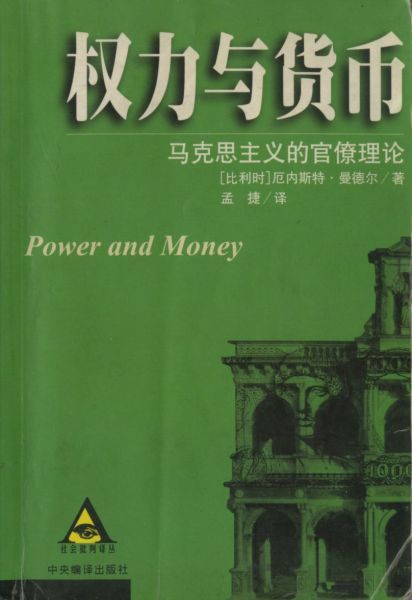
The real opening chapters of this book are concerned with "substitutionism," which revolutionaries will be particularly interested in. For if the ideology of substitutivism is characteristic of the leaders of large bureaucracies—who try to rationalize their continuing tendency to act in the name of and in place of wage labor—in some cases revolutionary leaders also will be seduced by arranged substitutionism. Mandel gave some convincing examples, not only of Lenin and Trotsky, but also of Luxemburg and Gramsci! He points out that the degree of autonomous activity of the working class and the oppressed is the determining factor. If this level is low, all sorts of arrogant substitutionism (parliamentary lines, petty consuls, terrorists, propagandists, etc.) usually occur. From here, Mandel again concludes that the main task of the revolutionary is to promote and encourage the self-agency of the working class and the oppressed masses as a whole, to the best of their ability.
debate
Ernest Mandel's theoretical contributions are too rich to be critically examined in a few sentences. I will have to limit myself to asking only three questions and please read my book. The central question of revolutionary Marxism is whether the reality of a world socialist revolution still exists in the 21st century, and whether the working class has lost the potential to lead such a revolutionary process. Trotsky had already expressed some doubts here that if the Soviet working class proved unable to overthrow the bureaucracy in order to rebuild its own class power, the transitional programme would lose its meaning and should be replaced by a new minimum programme, defending the enslaved the fundamental interests of the masses. And what about today? There is as yet no evidence (the above assertions) that the reconstruction of a revolutionary and liberating labor movement is still possible. Beginning with the rise of Brazil's Labor Party in the early 1980s, new breakthroughs have often ended in failure, until now.
Ernest Mandel's Marxist theory deserves a discussion. What is his dialectic in the midst of an open "Marxism" that also leans towards certain orthodoxy ("Marxism", "Leninism", "Trotskyism")? Is his quest for comprehensive theoretical coherence related to the need to maintain and strengthen his own relatively small organization? It should be added, by the way, that his Marxism - philosophically his world view (Weltanschauung) - draws heavily on the popular writings of Engels and Plekhanov, while Engels and Plekhanov More or less invented "Marxism". It is also the Promethean Marxism of the classic labor movement, associated with a firm belief in social, technological and scientific progress, as well as the creative potential of the working class, to solve the toughest problems.
Ernest Mandel doesn't like when people say he's too "optimistic". He predicted developments in the 1960s and 1970s in a fairly convincing way (not all of them, but they actually happened), which gave him a lot of confidence in himself. He is always looking for and following the development of movements with liberating potential anywhere in the world. Sometimes he overestimated the potential of the revolution, or underestimated the difficulties.
As early as 23 years old, he used the example of Abraham Léon, who encouraged his comrades to "see behind every reason for despair a reason for hope". Without such an admirable spiritual strength, how could one lead a revolutionary struggle against Nazism and war in the darkest times of the 20th century, while maintaining a humanitarian zeal? In his view, quoting Antonio Gramsci is a habit. As a change, I'll end with the words of Robert Merle, who said of his hero, the water bird scientist Sevilla: "He naively thinks that a business is successful because it Right, but he can't afford pessimism." [7]
July 20, 2020
Note
[1] Jan Willem Stutje, Ernest Mandel: The Rebel's Dream Delayed, Verso, 2009.
[2] Gilbert Achcar, ed., The Legacy of Ernest Mandel, Vessel Press, 2000.
[3] Manuel Kellner, Ernest Mandel’s Sociological Strategies, Neuer Isp Press, Karlsruhe/Cologne, 2010 ( Original in German - Translator's Note). The English translation, Against Capitalism and Bureaucracy: Ernest Mandel's Socialist Strategies, will be published this year (2020) by Brill & Haymarket in the series "Historical Materialism".
[4] Ernest Mandel, The Economics of Marxism, Merlin Press, 1977 (Introduction, p. 17).
[5] Ernest Mandel, Late Capitalism, Vessel Press, 1999.
[6] Ernest Mandel, Power and Money: The Bureaucratic Theory of Marxism, Vessel Press, London-New York, 1992.
[7] Robert Mayer, The Day of the Dolphin, Fawcett, 1977.
Author Manuel Kellner is editor of SoZ magazine and member of the German Left Party (Die Linke) and the Internationale Sozialistische Organisation, a German supporter of the Fourth International
Original link: https://internationalviewpoint.org/spip.php?article6733
Like my work?
Don't forget to support or like, so I know you are with me..
Comment…